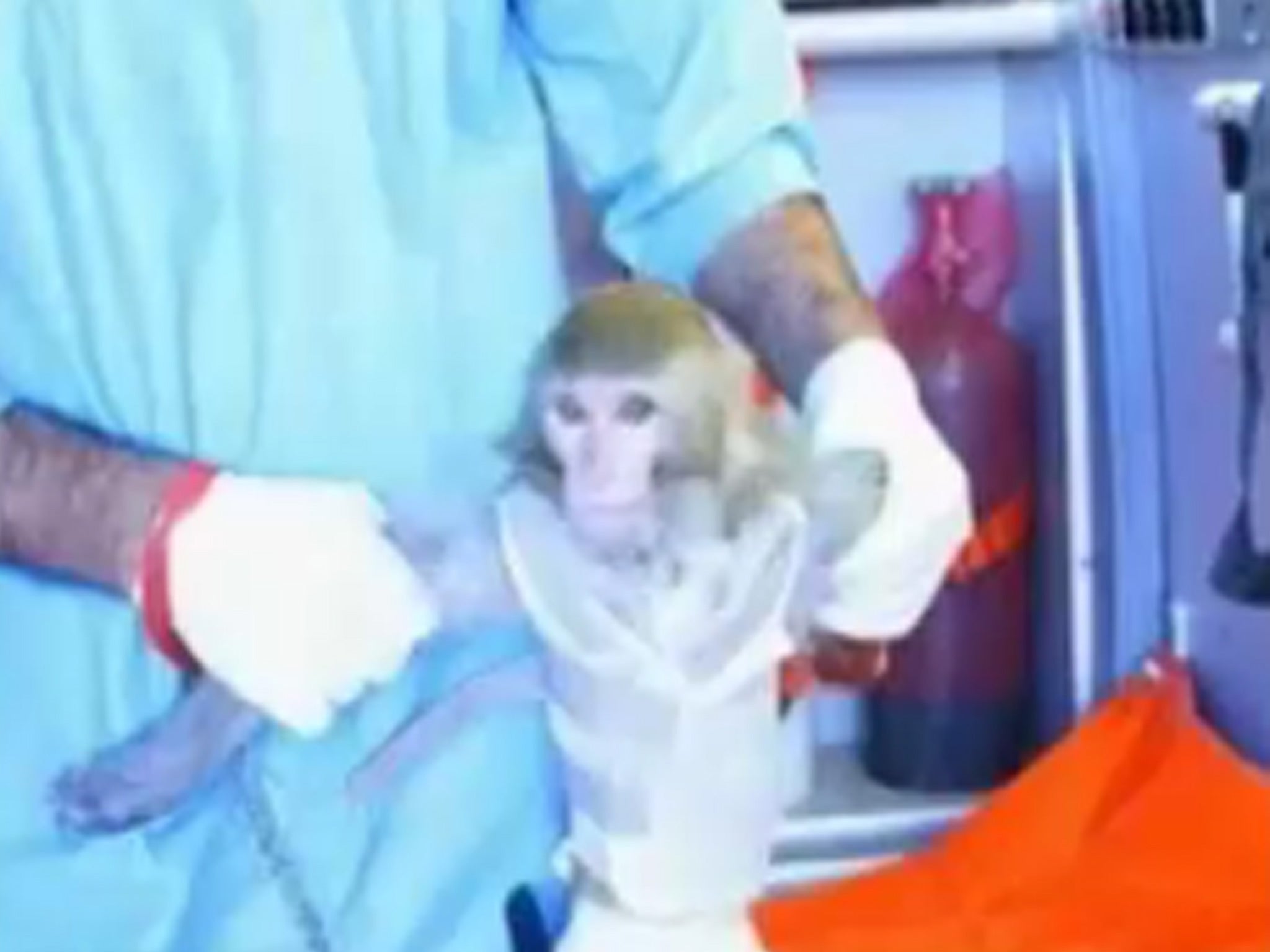
Your support helps us to tell the story
From reproductive rights to climate change to Big Tech, The Independent is on the ground when the story is developing. Whether it's investigating the financials of Elon Musk's pro-Trump PAC or producing our latest documentary, 'The A Word', which shines a light on the American women fighting for reproductive rights, we know how important it is to parse out the facts from the messaging.
At such a critical moment in US history, we need reporters on the ground. Your donation allows us to keep sending journalists to speak to both sides of the story.
The Independent is trusted by Americans across the entire political spectrum. And unlike many other quality news outlets, we choose not to lock Americans out of our reporting and analysis with paywalls. We believe quality journalism should be available to everyone, paid for by those who can afford it.
Your support makes all the difference.After training for the trip for more than a year, a monkey was yesterday successfully launched into space by Iran atop its latest Kavoshgar-3 rocket. The state news agency, Fars, later reported that the scientists had “brought back and recovered the living cargo.”
In this respect the nameless simian was extremely fortunate: if it had been able to read Wikipedia, it is unlikely that it would have consented to this reckless ride. The previous Iranian attempt to launch a monkey concluded “without achieving all [the mission’s] objectives” as a spokesman put it, with a hint of euphemism. No further detail was given.
For monkeys have never been lucky in space. After successfully launching and retrieving a cargo of fruit flies, the US in 1948 sent Albert, a rhesus monkey, 68 kms up atop a V2 rocket. He died of suffocation during the flight. Albert II, who followed him a year later, was burned to a crisp when his parachute failed to open. At this point a new, luckier name might have been tried but instead they stuck with Albert, and number III was torn to pieces when the rocket blew up. Albert IV went the same way as Albert II. After yet another parachute failure put paid to Albert V, Albert VI – who went up with a mouse called Yorick – became the first monkey to return to earth alive, only to die two hours after landing.
Iran’s monkey follows in the wake of an earlier live payload, consisting of rats, turtles and, significantly some might say, a can of worms. Like the numerous heroic American Alberts, the point was to demonstrate that a creature not all that different from a human being could go up and come down in one piece. Iran makes no secret of the fact that it hopes to get a human being into space by 2020, and on the moon by 2025.
Iran expert Sir Richard Dalton told The Independent that the stress on sending up a living organism was a way of showing the West that “the exercise was consistent with Iran’s claim that it has legitimate uses for its rocket expertise, and that it was a modern power with all the attributes of a second ranking country with more to it than the other states in the region – that it was up there with the likes of India.”
Dr Patricia Lewis of Chatham House commented, “A lot of countries are looking at space and putting up satellites, and it’s a very sensible idea – it’s significant that the UK, after pulling out in the 1980s for cost-saving reasons, has come back into the space race.” This time around the point of landing on the moon would not be so much for national prestige, she said, as potentially to mine its minerals, “though the economics of that are not yet clear.”
Eskandar Sadeghi-Boroujerdi, an Iranian scholar based in the UK, said the launch of the monkey was further proof of “a definite emphasis on science and engineering in Iran as being consonant with Islam – a way of demonstrating that Islam and progress come together and don’t undermine each other.” It was also, he added a way “to boost the nation’s credibility internationally – and to show that sanctions aren’t working.”
Join our commenting forum
Join thought-provoking conversations, follow other Independent readers and see their replies
Comments